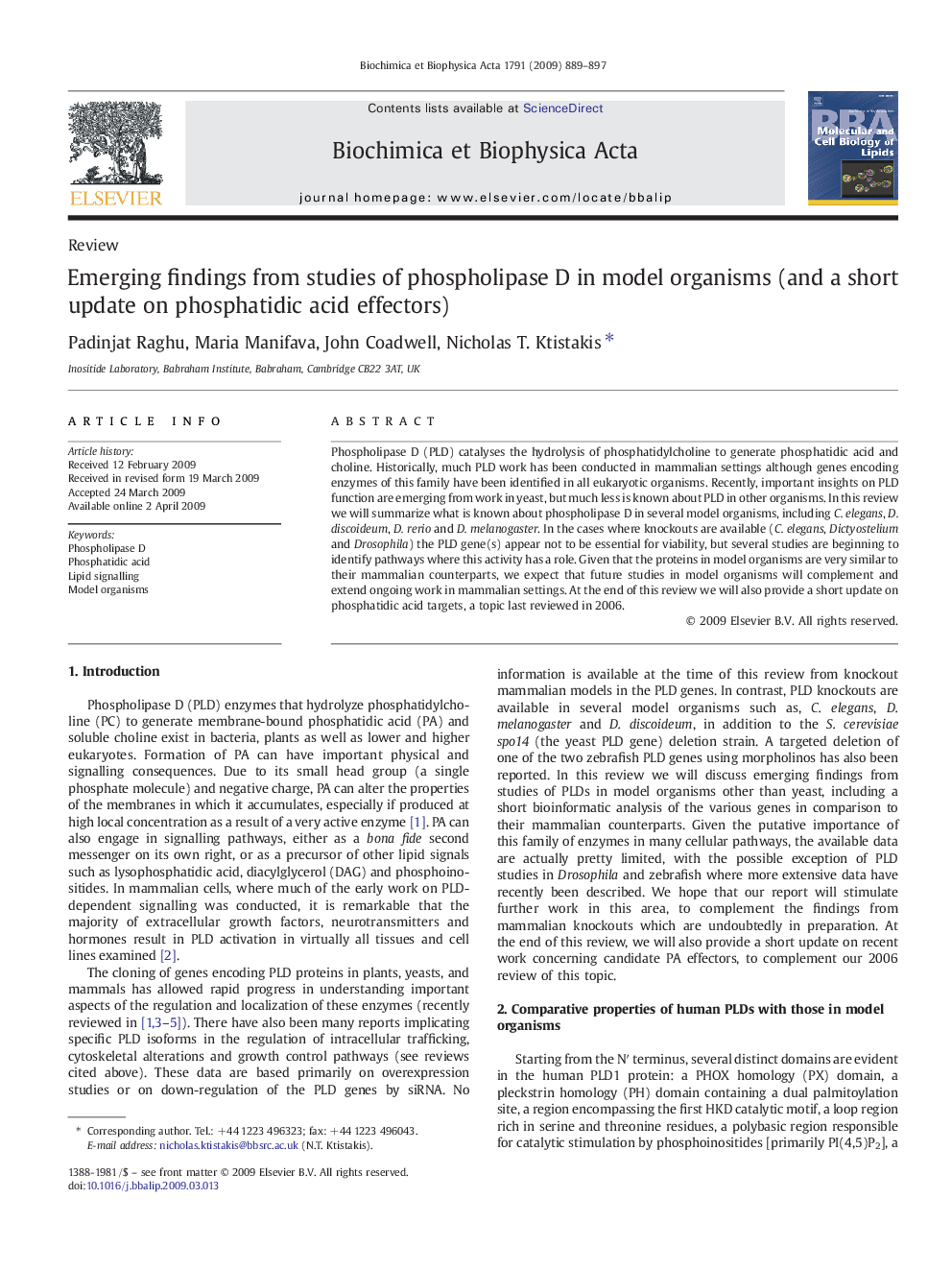| Article ID | Journal | Published Year | Pages | File Type |
|---|---|---|---|---|
| 1949842 | Biochimica et Biophysica Acta (BBA) - Molecular and Cell Biology of Lipids | 2009 | 9 Pages |
Abstract
Phospholipase D (PLD) catalyses the hydrolysis of phosphatidylcholine to generate phosphatidic acid and choline. Historically, much PLD work has been conducted in mammalian settings although genes encoding enzymes of this family have been identified in all eukaryotic organisms. Recently, important insights on PLD function are emerging from work in yeast, but much less is known about PLD in other organisms. In this review we will summarize what is known about phospholipase D in several model organisms, including C. elegans, D. discoideum, D. rerio and D. melanogaster. In the cases where knockouts are available (C. elegans, Dictyostelium and Drosophila) the PLD gene(s) appear not to be essential for viability, but several studies are beginning to identify pathways where this activity has a role. Given that the proteins in model organisms are very similar to their mammalian counterparts, we expect that future studies in model organisms will complement and extend ongoing work in mammalian settings. At the end of this review we will also provide a short update on phosphatidic acid targets, a topic last reviewed in 2006.
Related Topics
Life Sciences
Biochemistry, Genetics and Molecular Biology
Biochemistry
Authors
Padinjat Raghu, Maria Manifava, John Coadwell, Nicholas T. Ktistakis,
